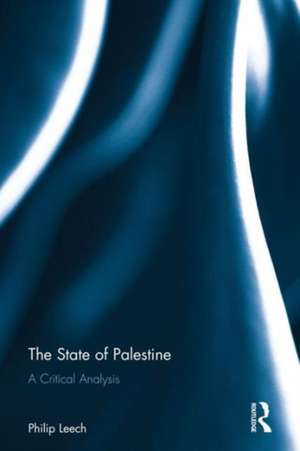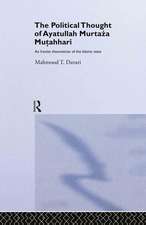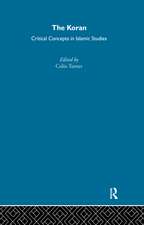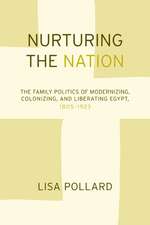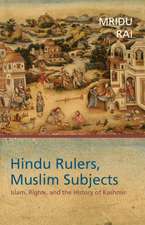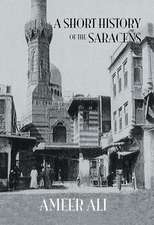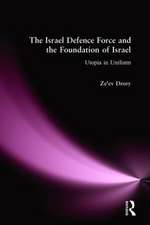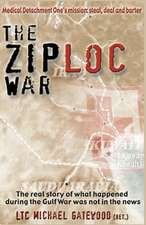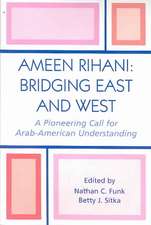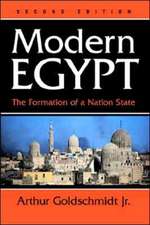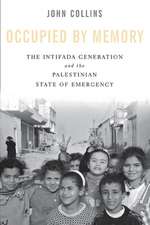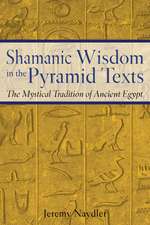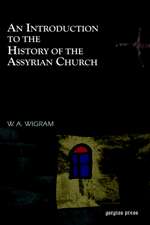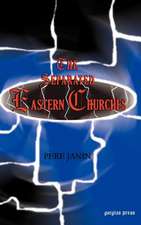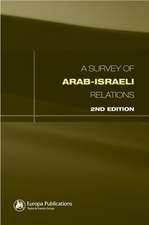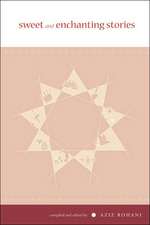The State of Palestine: A critical analysis
Autor Philip Leechen Limba Engleză Hardback – 25 iul 2016
Based on extensive field research interviews and participant observation undertaken across several sites in Nablus and the surrounding area, it provides a bottom-up interpretation of the Palestinian Authority's agenda and challenges the popular interpretation that its governance represents the only realistic path to Palestinian independence. As the first major account of the Palestinian Authority's political agenda since the collapse of the unity government this book offers a unique explanation for the failure to bring a Palestinian state into being and challenges assumptions within the existing literature by addressing the apparent incoherence between mainstream debates on Palestine and the reality of conditions there.
This book is a key addition to students and scholars interested in Politics, Middle-Eastern Studies, and International Relations.
| Toate formatele și edițiile | Preț | Express |
|---|---|---|
| Paperback (1) | 259.98 lei 43-57 zile | |
| Taylor & Francis – 30 iun 2020 | 259.98 lei 43-57 zile | |
| Hardback (1) | 848.54 lei 43-57 zile | |
| Taylor & Francis – 25 iul 2016 | 848.54 lei 43-57 zile |
Preț: 848.54 lei
Preț vechi: 1140.92 lei
-26% Nou
Puncte Express: 1273
Preț estimativ în valută:
162.37€ • 169.95$ • 135.14£
162.37€ • 169.95$ • 135.14£
Carte tipărită la comandă
Livrare economică 31 martie-14 aprilie
Preluare comenzi: 021 569.72.76
Specificații
ISBN-13: 9781472447760
ISBN-10: 147244776X
Pagini: 218
Ilustrații: 11
Dimensiuni: 156 x 234 x 18 mm
Greutate: 0.5 kg
Ediția:1
Editura: Taylor & Francis
Colecția Routledge
Locul publicării:Oxford, United Kingdom
ISBN-10: 147244776X
Pagini: 218
Ilustrații: 11
Dimensiuni: 156 x 234 x 18 mm
Greutate: 0.5 kg
Ediția:1
Editura: Taylor & Francis
Colecția Routledge
Locul publicării:Oxford, United Kingdom
Cuprins
- Introduction
- The ‘State’ and Palestine
- The Fragmentation of Palestine
- Making Plans
- Palestinian Authoritarianism
- The ‘State of Palestine’
- ‘Economic Peace’
- Disaster, Capitalism and Palestine
- Conclusions
Notă biografică
Philip Leech is Senior Fellow at the Institute for Government at the University of Ottawa, Canada, and a Visiting Fellow at the Kenyon Institute in Jerusalem. He has a PhD from Exeter University’s Institute for Arab and Islamic Studies and is the co-editor of Political Identities and Popular Uprisings in the Middle East (2016).
Recenzii
The State of Palestine’ provides a comprehensive critique of the false messiah of state-building as a strategy for Palestinian emancipation. Based on extensive research in the occupied Palestinian territory, particularly in the city of Nablus, Leech critically assesses 20 years of the Palestinian Authority, but with a focus on the post-2006 era. This book is essential reading for those who wish to understand Palestinian politics today and for why the so-called ‘two-state solution’ was - and remains - so fundamentally flawed.
- Dr Mandy Turner, Director of the Kenyon Institute in Jerusalem (Council for British Research in the Levant)
The first thorough and scholarly examination of the post-Oslo reality in the West Bank. This careful and forensic study exposes the fallacies surrounding the reality on the ground in the areas under the Palestinian Authority control. A highly important source of information and deconstruction for anyone who wishes genuinely to understand, and change, the dismal reality on the ground in the West Bank and beyond.
- Ilan Pappe, Professor of History at the Institute for Arab and Islamic Studies, Exeter University
Drawing upon original fieldwork in the north of the West Bank, Phil Leech provides a meticulous and much-needed critique of the Palestinian Authority’s ‘state building’ project. This is a fascinating and timely account of Palestinian politics that deserves to be widely read.
- Adam Hanieh, Senior Lecturer in Development Studies, the School of Oriental and African Studies, University of London.
Leech makes a compelling case that the Palestinian Authority's and the international community's statebuilding project in the Occupied Territories never stood a real chance. Extensive engagement with the lived experience of those in cities, villages and refugee camps is married to a grasp of the higher politics and economic models at play. Although accessibly written, this is not a comfortable read, challenging many of the hopeful scenarios politicians and activists have held on to. Laying bare the real dynamics at work, Leech’s analysis is a prerequisite for moving beyond the pious hopes and assertions of the past.
Gerd Nonneman, Professor of International Relations, Georgetown University School of Foreign Service
In this excellent account, Philip Leech goes beyond the rhetoric of countless policymakers and journalists to deliver a meticulous critique of the Palestinian Authority’s doomed statebuilding project. He convincingly demonstrates how a security agenda and a neoliberal economic strategy took precedence over democracy and the path to Palestinian independence.
- Rory McCarthy was The Guardian’s Jerusalem correspondent 2006-10
- Dr Mandy Turner, Director of the Kenyon Institute in Jerusalem (Council for British Research in the Levant)
The first thorough and scholarly examination of the post-Oslo reality in the West Bank. This careful and forensic study exposes the fallacies surrounding the reality on the ground in the areas under the Palestinian Authority control. A highly important source of information and deconstruction for anyone who wishes genuinely to understand, and change, the dismal reality on the ground in the West Bank and beyond.
- Ilan Pappe, Professor of History at the Institute for Arab and Islamic Studies, Exeter University
Drawing upon original fieldwork in the north of the West Bank, Phil Leech provides a meticulous and much-needed critique of the Palestinian Authority’s ‘state building’ project. This is a fascinating and timely account of Palestinian politics that deserves to be widely read.
- Adam Hanieh, Senior Lecturer in Development Studies, the School of Oriental and African Studies, University of London.
Leech makes a compelling case that the Palestinian Authority's and the international community's statebuilding project in the Occupied Territories never stood a real chance. Extensive engagement with the lived experience of those in cities, villages and refugee camps is married to a grasp of the higher politics and economic models at play. Although accessibly written, this is not a comfortable read, challenging many of the hopeful scenarios politicians and activists have held on to. Laying bare the real dynamics at work, Leech’s analysis is a prerequisite for moving beyond the pious hopes and assertions of the past.
Gerd Nonneman, Professor of International Relations, Georgetown University School of Foreign Service
In this excellent account, Philip Leech goes beyond the rhetoric of countless policymakers and journalists to deliver a meticulous critique of the Palestinian Authority’s doomed statebuilding project. He convincingly demonstrates how a security agenda and a neoliberal economic strategy took precedence over democracy and the path to Palestinian independence.
- Rory McCarthy was The Guardian’s Jerusalem correspondent 2006-10
Descriere
Based on extensive field research interviews and participant observation undertaken across several sites in Nablus and the surrounding area, it provides a bottom-up interpretation of the Palestinian Authority's agenda and challenges the popular interpretation that its governance represents the only realistic path to Palestinian independence. As the first major account of the Palestinian Authority's political agenda since the collapse of the unity government, this book offers a unique explanation for the failure to bring a Palestinian state into being and challenges assumptions within the existing literature.
